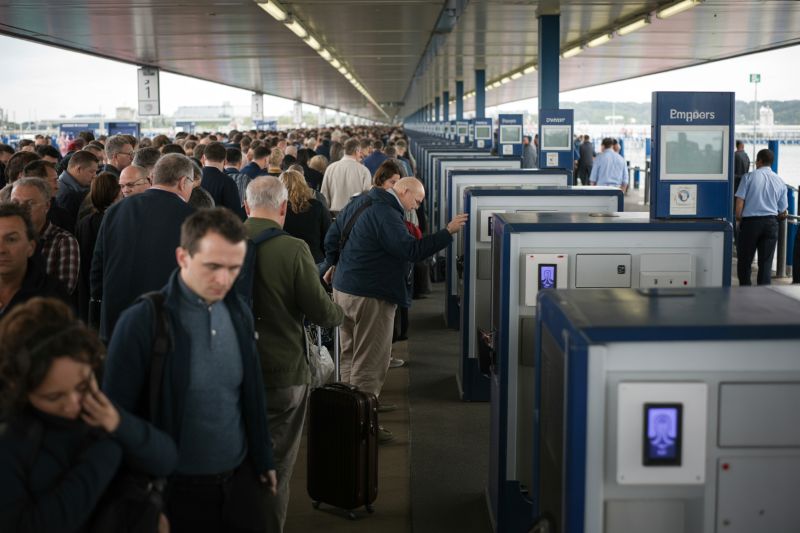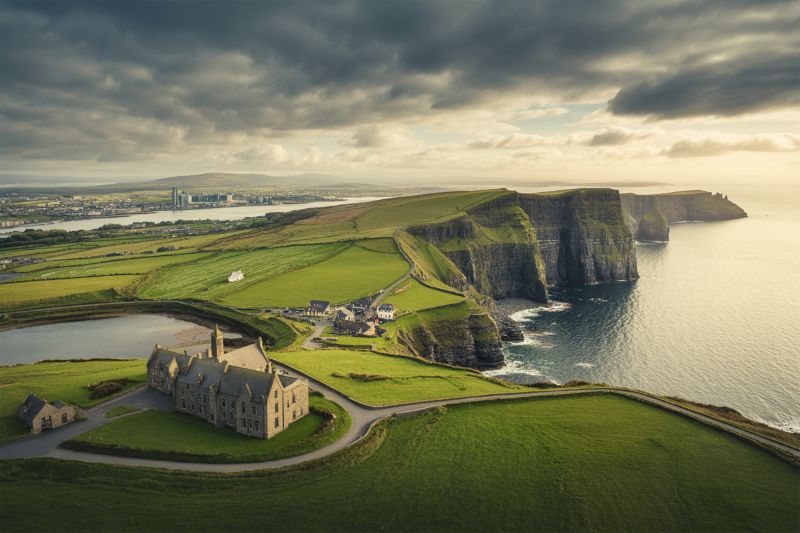Orkney Islands in the UK May Introduce Tourist Fee to Preserve Landmarks and Local Communities, Here’s All You Need to Know

In the near future, the Orkney Islands in the northern part of Scotland, known for their incredible cliffs, Neolithic monuments, and maritime history, may soon implement a £5 visitor fee to better manage the volume of tourists. This proposed measure, which the local authorities are currently considering, seeks to preserve the delicate ecosystems and improve the available infrastructure considering the overtourism issues in the area.
With only 22,000 people living on Orkney, the Islands receive approximately 450,000 visitors per year which means there are more than twenty tourists for every local. Most tourists arrive on cruise ships and Orkney is one of their destinations because of its remarkable heritage sites which includes Skara Brae, the Ring of Brodgar, and the St Magnus Cathedral. However, the lack of transport, waste, and sanitation facilities available on the Islands is proving to be a problem and increasingly puts stress on the infrastructure.
A Response to Overtourism Challenges
Local leaders say that the fee proposal is not intended to discourage visitors, but to ensure that tourism growth remains sustainable and beneficial to the community. The initiative follows similar efforts in other UK destinations, such as Edinburgh and Manchester, which have introduced tourist levies to reinvest in local services.
“Overtourism is a real concern,” said Martin Fleet, chair of Destination Orkney, a regional tourism body. “We have incredible heritage and natural assets that people from all over the world want to see, but we must protect them for future generations. The goal isn’t to limit access—it’s to manage it responsibly.”
Fleet estimates that a flat £5 fee per visitor could generate as much as £2 million annually, funds that would go toward building new public toilets, coach parks, pathways, and waste facilities. These upgrades, he noted, are essential for both residents and tourists to enjoy the islands sustainably.
Cruise Ships Drive Visitor Surge
Orkney has become Britain’s busiest cruise destination, attracting vessels from Germany, Italy, the United States, and beyond. Cruise passengers make up a significant share of arrivals, with some ships bringing thousands of visitors in a single day. While this influx supports local businesses—from cafés to tour guides—it also creates logistical challenges for small towns and historic sites.
“The local economy depends on tourism, but cruise ships can overwhelm small communities,” said a local guide in Kirkwall. “When three ships dock at once, even simple facilities like toilets and parking become stretched.”
The proposed entry levy, which would be added to cruise, ferry, and flight fares, aims to spread the cost of maintaining infrastructure more equitably among visitors, rather than leaving it to local taxpayers.
Local Authorities Unite for Legislative Change
The Orkney Islands Council, along with counterparts in Shetland and the Western Isles (Comhairle nan Eilean Siar), has called on the Scottish Government to enact legislation allowing island councils to collect the fee. Officials argue that such a mechanism is necessary to sustain tourism-driven economies while preserving delicate island environments.
In a joint statement, the councils emphasized that the charge would not function as a deterrent but as a “visitor contribution”—a model increasingly common in tourist destinations worldwide. The revenue would directly support infrastructure and environmental projects that enhance visitor experiences.
The Scottish Government has confirmed it is considering the proposal as part of a broader consultation on tourism levies, including a point-of-entry tax for cruise ships. The government’s review is expected to explore how such a system could operate across different modes of transport and be administered fairly.
Preserving Orkney’s Cultural and Natural Heritage
Orkney’s popularity stems from its UNESCO World Heritage sites, scenic coastal trails, and strong cultural identity. However, the very features that make it appealing are also the most vulnerable. Sites like Skara Brae—Europe’s best-preserved Stone Age village—face wear and erosion due to high visitor numbers and changing weather patterns.
Conservationists warn that without additional funding, essential maintenance and visitor management could become unsustainable. The proposed levy would help finance path reinforcement, site preservation, and educational programs to foster responsible tourism.
A Global Trend in Responsible Tourism
The Orkney proposal aligns with a wider global shift toward responsible tourism. Cities such as Venice, Barcelona, and Dubrovnik have introduced tourist taxes or entry controls to reduce crowding and fund public amenities. In the UK, Edinburgh became the first city to approve a visitor accommodation levy, and discussions about similar models are ongoing in other regions.
For Orkney, where communities rely heavily on visitor spending, introducing a small, transparent fee could strike the balance between welcoming guests and maintaining the islands’ quality of life. Local residents have largely expressed cautious support, provided the funds are reinvested directly into community infrastructure.
Potential Impacts on Travelers
For tourists, the proposed £5 charge would likely have minimal financial impact, representing a tiny fraction of typical travel costs. However, the benefits could be significant—improved public facilities, reduced congestion at key attractions, and a more enjoyable experience overall.
Travel experts note that such initiatives can enhance destination appeal by signaling commitment to sustainability. “Today’s travelers are increasingly eco-conscious,” said a spokesperson for VisitScotland. “They appreciate destinations that take action to protect their landscapes and cultural heritage.”
Looking Ahead: Tourism with a Purpose
If it goes through, Orkney’s fee could be an example for other rural or island locations dealing with overtourism. This showcases a paradigm shift as it showcases an increasing awareness that successful tourism economies require collaboration, as well as care, respect, and long-term stewardship.
While considering the proposal, the islanders of the Scottish Government expect to be able to protect the natural beauty of their home and continue to host the rest of the world.
The post Orkney Islands in the UK May Introduce Tourist Fee to Preserve Landmarks and Local Communities, Here’s All You Need to Know appeared first on Travel And Tour World.










